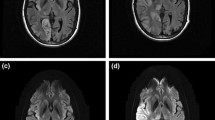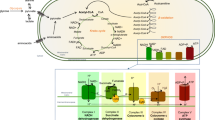Abstract
Mitochondrial diseases are a genetically and clinically diverse group of disorders that arise as a result of dysfunction of the mitochondria. Mitochondrial disorders can be caused by alterations in nuclear DNA and/or mitochondrial DNA. Although some mitochondrial syndromes have been described clearly in the literature many others present as challenging clinical cases with multisystemic involvement at variable ages of onset. Given the clinical variability and genetic heterogeneity of these conditions, patients and their families often experience a lengthy and complicated diagnostic process. The diagnostic journey may be characterized by heightened levels of uncertainty due to the delayed diagnosis and the absence of a clear prognosis, among other factors. Uncertainty surrounding issues of family planning and genetic testing may also affect the patient. The role of the genetic counselor is particularly important to help explain these complexities and support the patient and family’s ability to achieve effective coping strategies in dealing with increased levels of uncertainty.




Similar content being viewed by others
References
Graham BH. Diagnostic challenges of mitochondrial disorders: complexities of two genomes. Methods Mol Biol 2012;837:35-46.
Stewart JL, Mishel MH. Uncertainty in childhood illness: A synthesis of the parent and child literature. Sch Inq Nurs Pract 2000;14:299-319.
Lipinski S, Lipinski MJ, Biesecker LG, Biesecker BB. Uncertainty and perceived personal control among parents of children with rare chromosome conditions: The role of genetic counseling. Am J Med Genet C Semin Med Genet 2006;142C:232-240.
Baker MR, Fisher KM, Whittaker RG, Griffiths PG, Yu-Wai-Man P, Chinnery PF. Subclinical multisystem neurologic disease in “pure” OPA1 autosomal dominant optic atrophy. Neurology 2011;77: 1309-1312.
Finsterer J. Leigh and Leigh-like syndrome in children and adults. Ped Neurology 2008;39:223-235.
Lee IC, El-Hattab AW, Wang J, et al. SURF1-associated leigh syndrome: A case series and novel mutations. Hum Mutat 2012;33:1192-1200.
Potluri P, Davila A, Ruiz-Pesini E, Mishmar D, O'Hearn S, Hancock S, et al. A novel NDUFA1 mutation leads to a progressive mitochondrial complex I-specific neurodegenerative disease. Mol Genet Metab 2009;96:189-195.
Mayr JA, Bodamer O, Haack TB, Zimmermann FA, Madignier F, Prokisch H, et al. Heterozygous mutation in the X chromosomal NDUFA1 gene in a girl with complex I deficiency. Mol Genet Metab 2011;103:358-361.
Sproule DM, Kaufmann P. Mitochondrial encephalopathy, lactic acidosis, and strokelike episodes: basic concepts, clinical phenotype, and therapeutic management of MELAS syndrome. Ann N Y Acad Sci 2008;1142:133-158.
Chinnery PF, Howell N, Lightowlers RN, Turnbull DM. MELAS and MERRF. The relationship between maternal mutation load and the frequency of clinically affected offspring. Brain 1998;121:1889-1894.
Thorburn DR, Hans-Henrik DM. Mitochondrial disorders: Genetics, counseling, prenatal diagnosis and reproductive options. Am J Med Genet 2001;106:102-114.
Haas RH, Parikh S, Falk MJ, et al. Mitochondrial disease: a practical approach for primary care physicians. Pediatrics 2007;120:1326-1333.
Haas RH, Parikh S, Falk MJ, Saneto RP, Wolf NI, Darin N, et al. The in-depth evaluation of suspected mitochondrial disease. Mol Genet Metab 2008;94:16-37.
Bernier FP, Boneh A, Dennet X, Chow CW, Cleary MA, Thorburn DR. Diagnostic criteria for respiratory chain disorders in adults and children. Neurology 2002;59:1406-1411.
Lewis C, Skirton H, Jones R. Living without a diagnosis: the parental experience. Genet Test Mol Biomarkers 2010;14:807-815.
Graungaard AH, Skov L. Why do we need a diagnosis? A qualitative study of parents’ experiences, coping and needs, when the newborn child is severely disabled, Child Care Health Dev 2006;33: 296-307.
Rosenthal ET, Biesecker LG, Biesecker BB. Parental attitudes toward a diagnosis in children with unidentified multiple congenital anomaly syndromes. Am J Med Genet 2001;103:106-114.
Jessup DJ, Stein RK. Uncertainty and its relationship to the psychological and social correlates of chronic illness in children. Soc Sci Med 1985;12:993-999.
Grootenhius MA, Last BF. Predictors of parental emotional adjustment to childhood cancer. Psychooncology 1997;6:115-128.
Clarke-Steffen L. A model of the family transition to living with childhood cancer. Cancer Pract 1993;1:285-292.
Cohen MH. The unknown and the unknowable- Managing sustained uncertainty. West J Nurs Res 1993;15:77-96.
Rew L, Kaur M, McMillan A, Mackert M, Bonevac D. Systematic review of psychological benefits and harms of genetic testing, Issues Ment Health Nurs 2010;31:631-645.
Bredenoord AL, Dondorp W, Pennings G, De Die-Smulders CE, De Wert G. PGD to reduce reproductive risk: the case of mitochondrial DNA disorders. Hum Reprod 2008;23:2392-2401.
Required Author Forms
Disclosure forms provided by the authors are available with the online version of this article.
Author information
Authors and Affiliations
Corresponding author
Electronic Supplementary Material
Below is the link to the electronic supplementary material.
ESM 1
(PDF 367 kb)
Rights and permissions
About this article
Cite this article
Vento, J.M., Pappa, B. Genetic Counseling in Mitochondrial Disease. Neurotherapeutics 10, 243–250 (2013). https://doi.org/10.1007/s13311-012-0173-2
Published:
Issue Date:
DOI: https://doi.org/10.1007/s13311-012-0173-2




